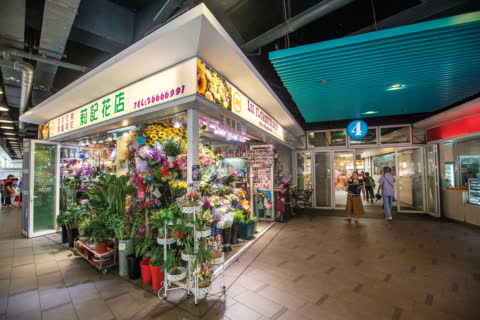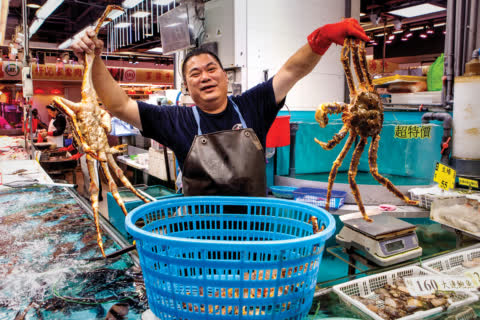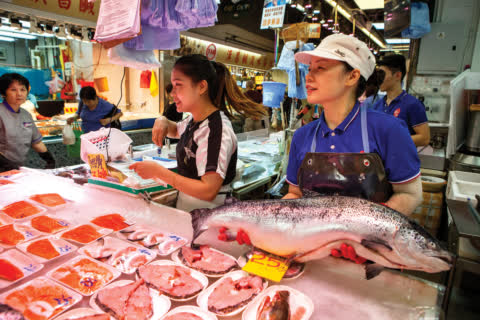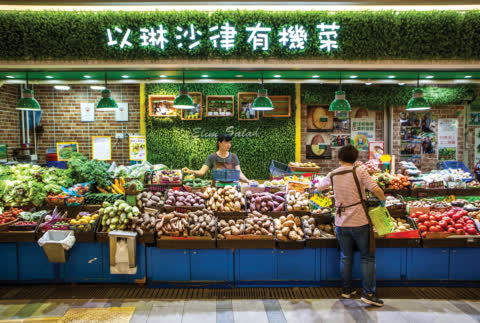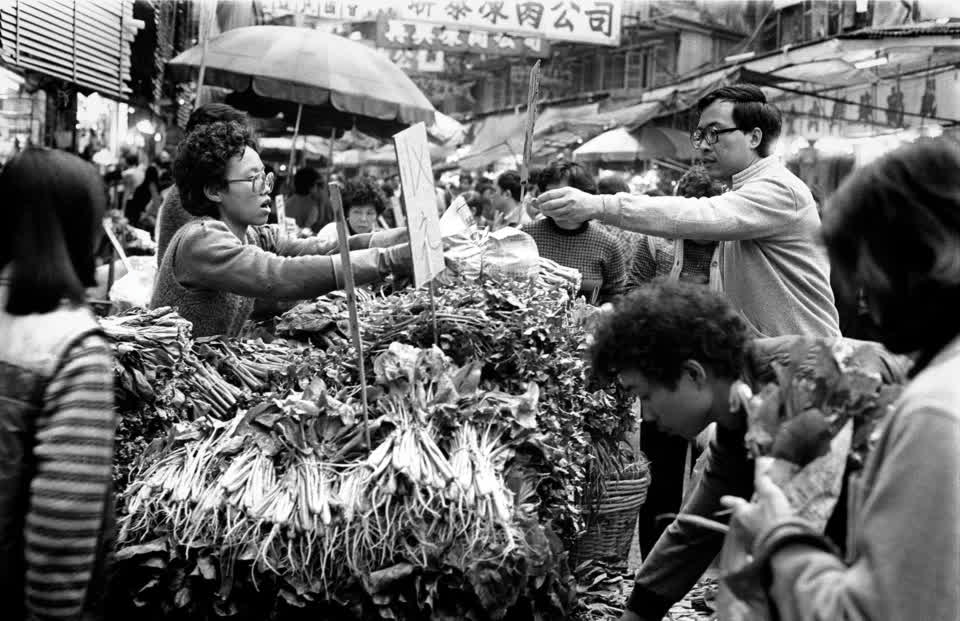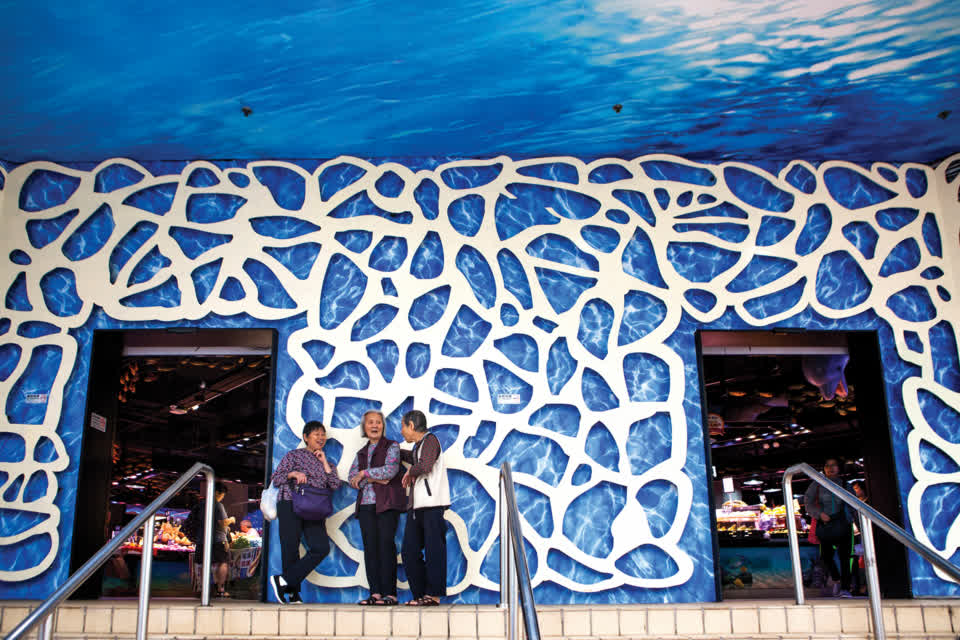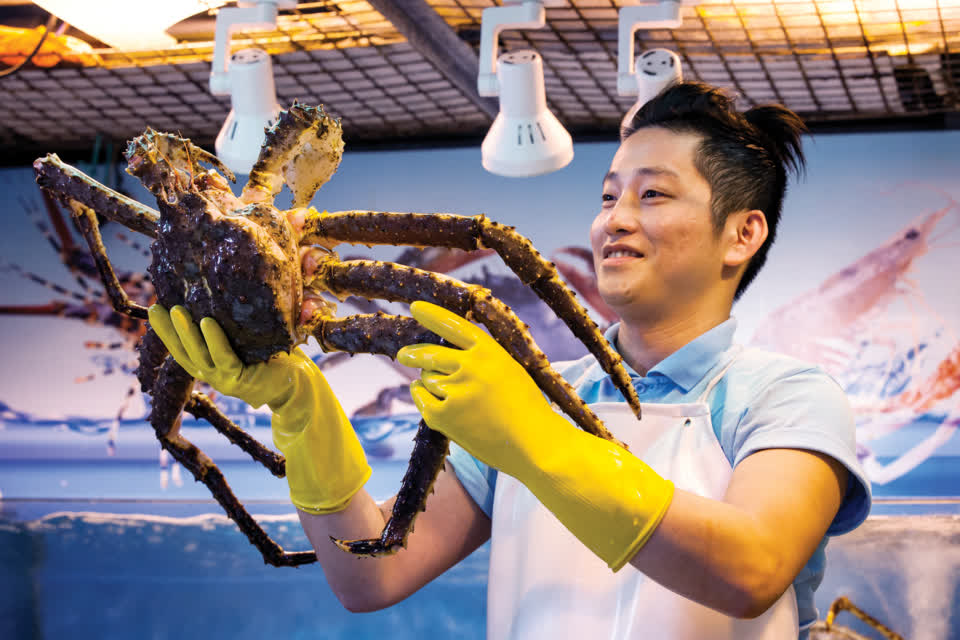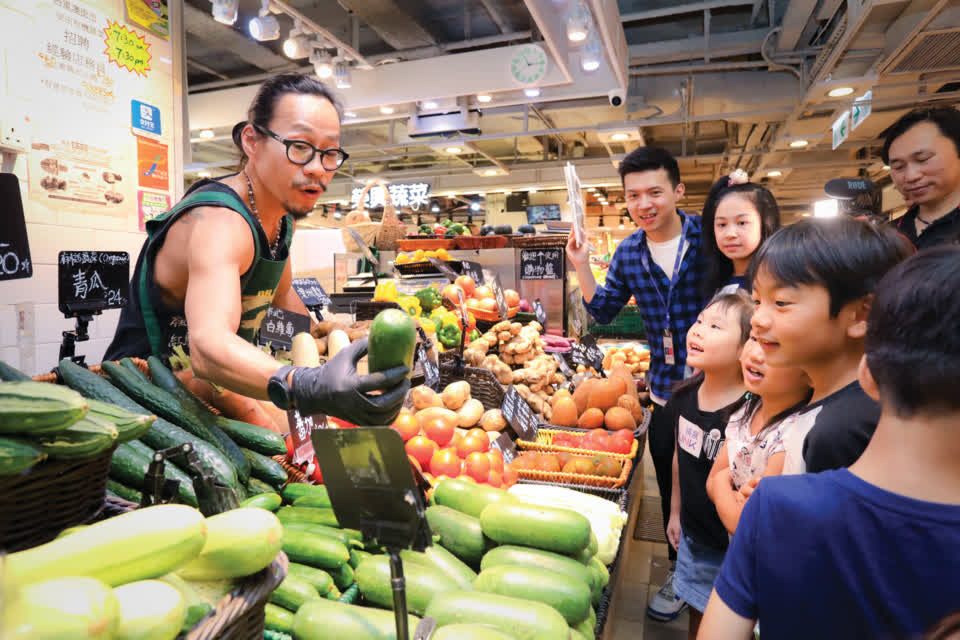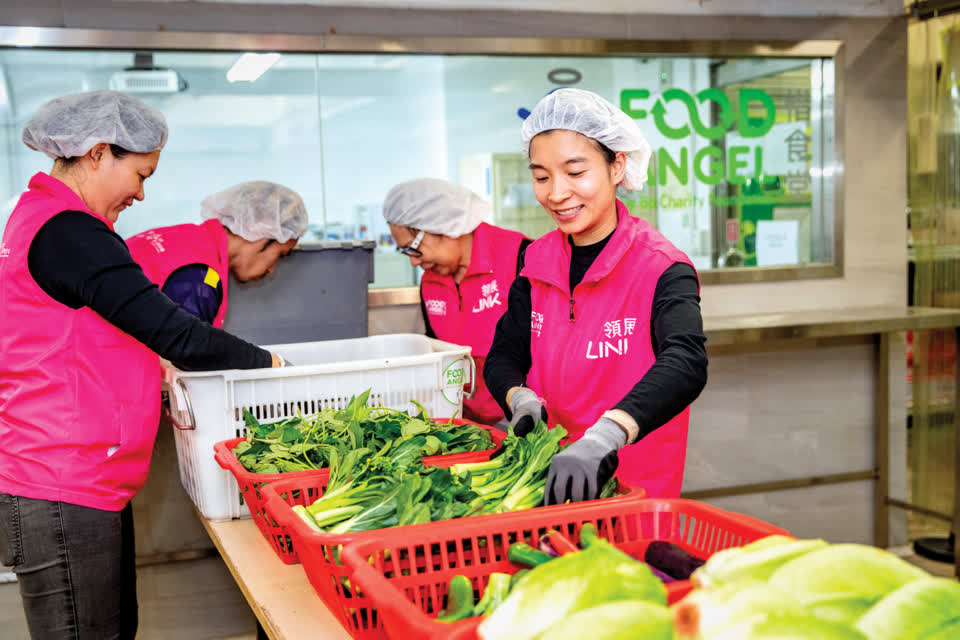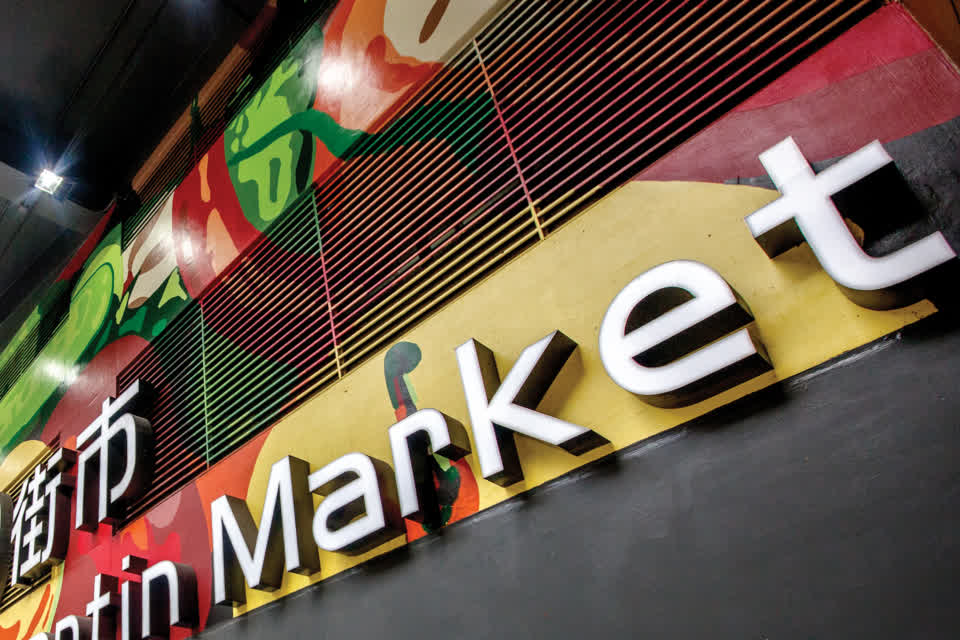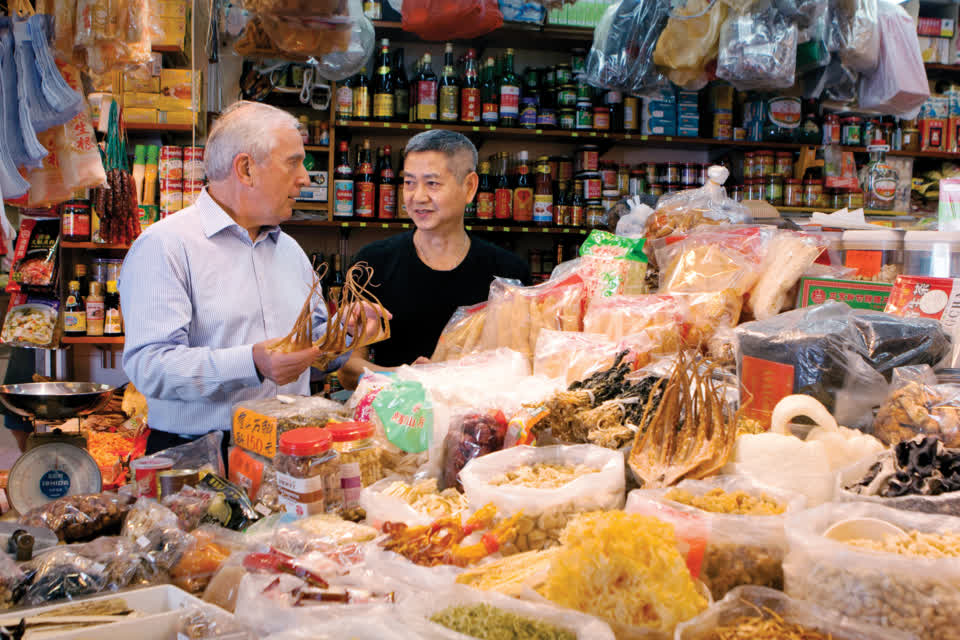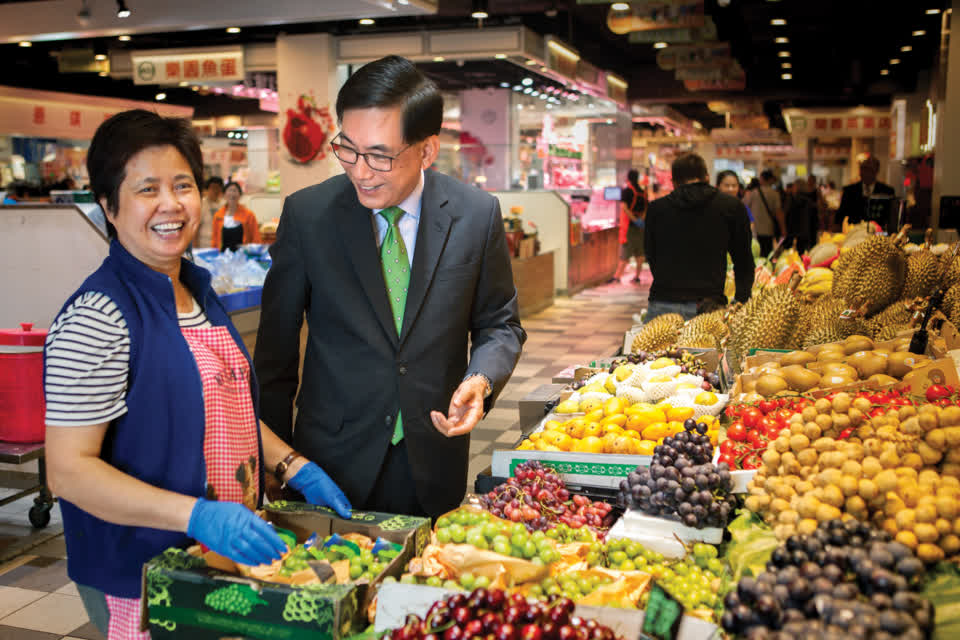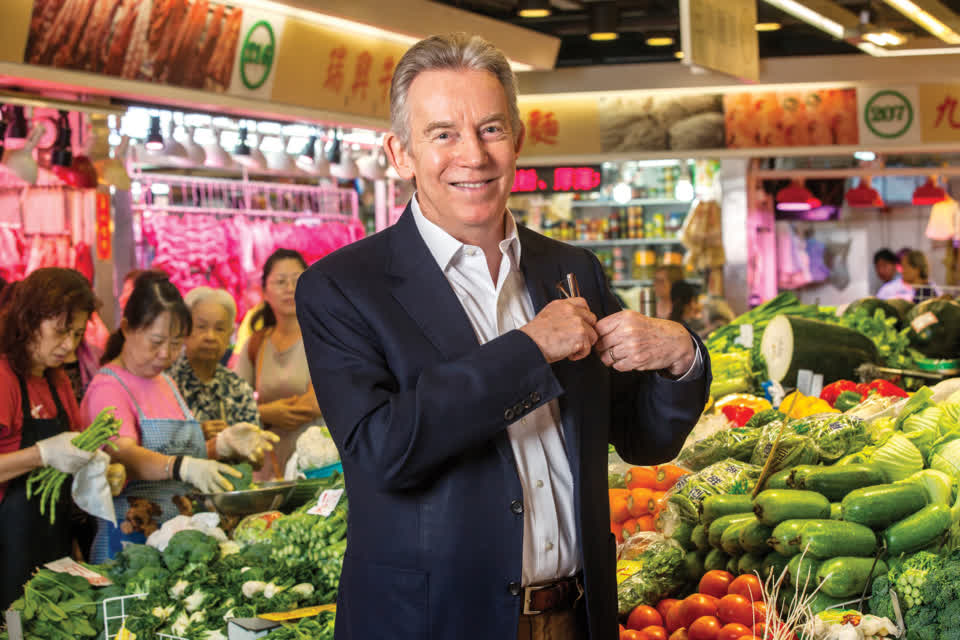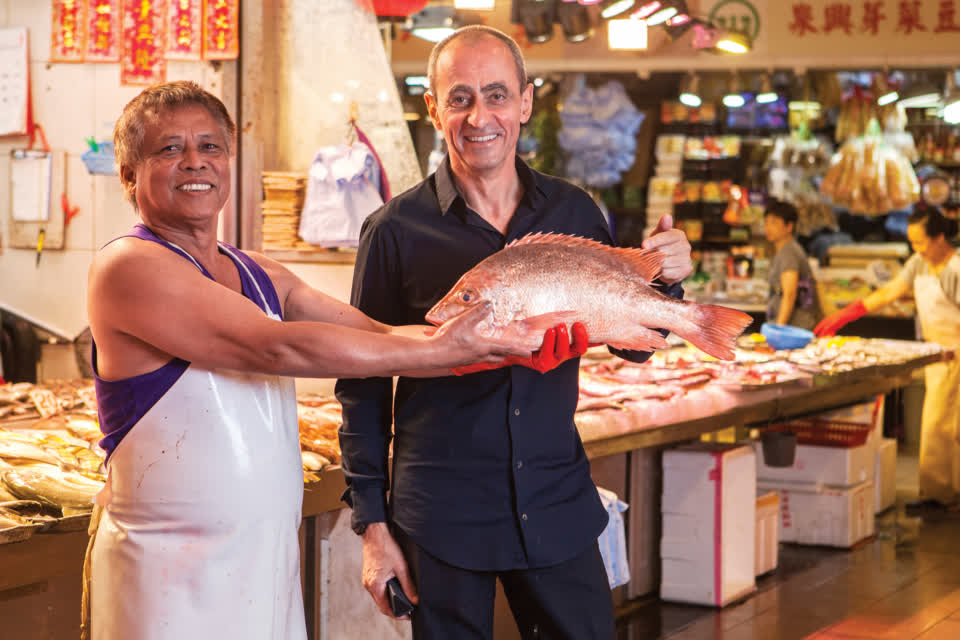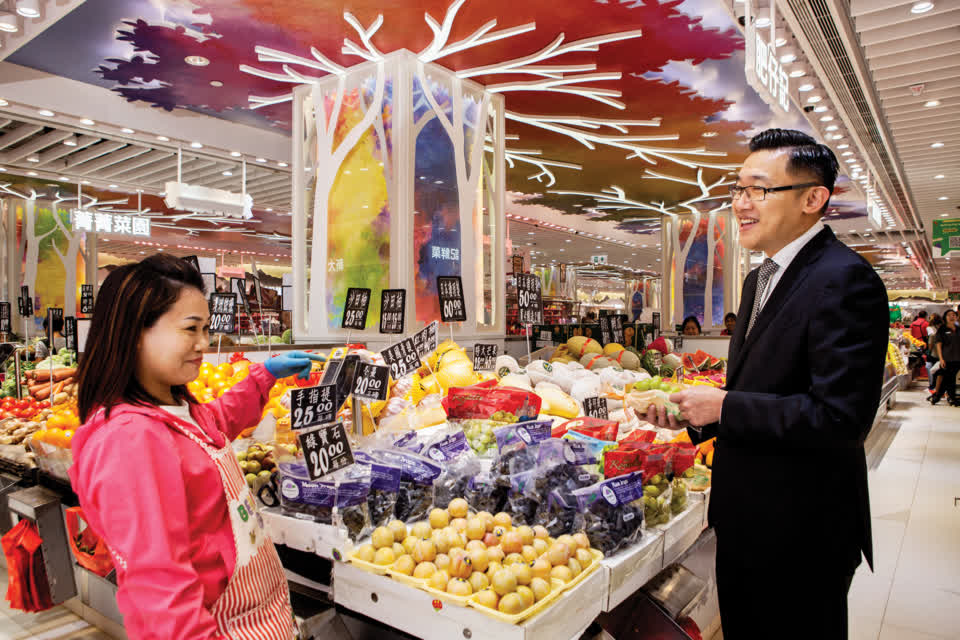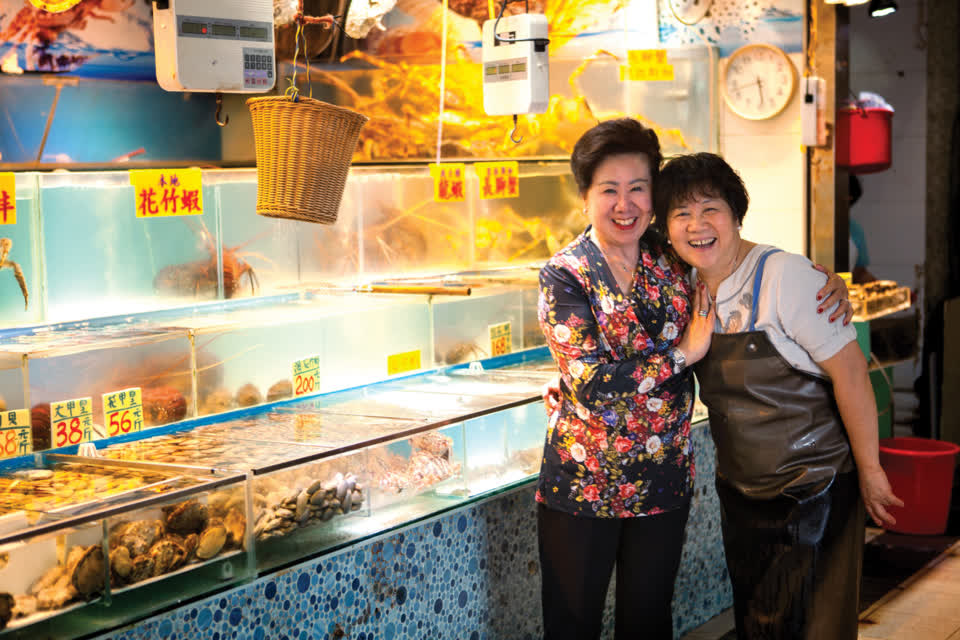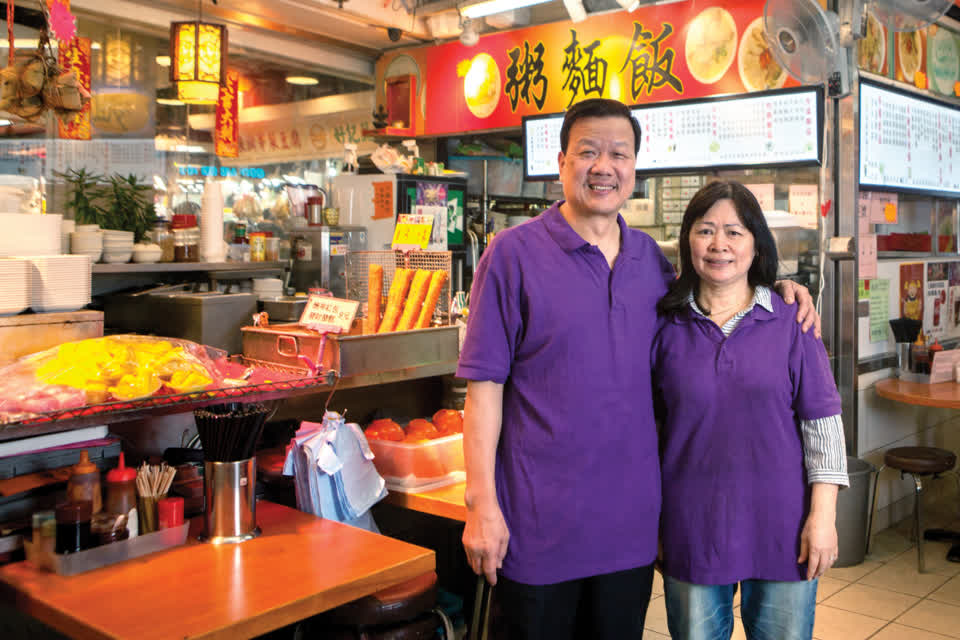FIRST IMPRESSIONS COUNT
What feedback does Link CEO George Hongchoy most frequently receive about the new markets?
“They smell great!” he says.
It’s true. As you walk into one of the renovated markets, you instantly notice the fragrance of the flower stalls, and the changing aromas of the fruits and vegetables. It’s a big difference to the way markets were in the past, and this better environment is no accident.
“The old issue about smell was really about cleaning,” Hongchoy explains. “The traditional markets probably did not have a proper clean-up at the end of each day, which we do now. In terms of disposing of all sorts of things, from carcasses to fish scales to little things like blockages to drains, we dealt with all that in our design – putting the seafood stalls and meat closer to the loading bays, for example, so that traders don’t have to drag all the fish or water tanks across the entire market.”
By renovating, Link was able to retain the strengths of traditional markets while enhancing the customers’ shopping experience and the tenants’ operating environment, Hongchoy says. The enhancement works have enabled long-established tenants to continue providing services in a much better environment, and have renewed the culture of fresh market shopping.
Some tenants have taken the chance to seize the opportunities that come with a new generation of shoppers.
“Take a fish stall as an example,” Hongchoy says. “It really can demonstrate the confidence that the tenants can gain in the market over a period of time. Sometimes the stalls have just opened, and you can see they have just some fish and shrimps, maybe a few crabs. Over time, business gets better, and then you see they are stocking up with lobsters and abalone and all that. The cost of these perishable goods is not low, so if they are not confident there are shoppers to come to buy them, they wouldn’t be stocking them. A lot of the time, it is the tenants who are willing to break this chicken-and-egg dilemma.
“It really can demonstrate the confidence that the tenants can gain in the market over a period of time”
“In many cases, we have expanded the market’s catchment area to provide the tenants with a variety of shoppers, so that additional products can be sold. As a result, their turnover is doing very well.”
The trade mix, stall arrangements and displays of goods all need constant modifying to best meet customers’ evolving wants and needs. For instance, tenants will introduce new items that are in rising demand, like organic produce, OmniPork (a plant-based alternative to meat), or foodstuffs for the growing number of people adopting a vegan diet. There are always business opportunities in line with the latest trends in dining.
Lee Chi-hang, owner of the Elim organic vegetables stall in Lok Fu, says there is a rising demand for cooking and eating healthily. He brings in a wide variety of seasonal vegetables from all over the world.
“Sustainability is good for those around us, and therefore good for our business,” says Hongchoy. “We are promoting a healthy and eco-conscious food culture.”
Food origin is another issue that is starting to become more important.
“Most of our chickens are bred in Hong Kong, so you can actually have a local chicken supply,” says Hongchoy. “They can tell you the different breeds, so the labelling is very clear. Also for pork, whether it is local or if it is imported from places like China. We have stalls that sell a dozen types of eggs from different countries, and so sourcing is increasingly important to the consumers. The labels need to be very clear. This is a trend: more and more people demand to know where their food comes from.”
